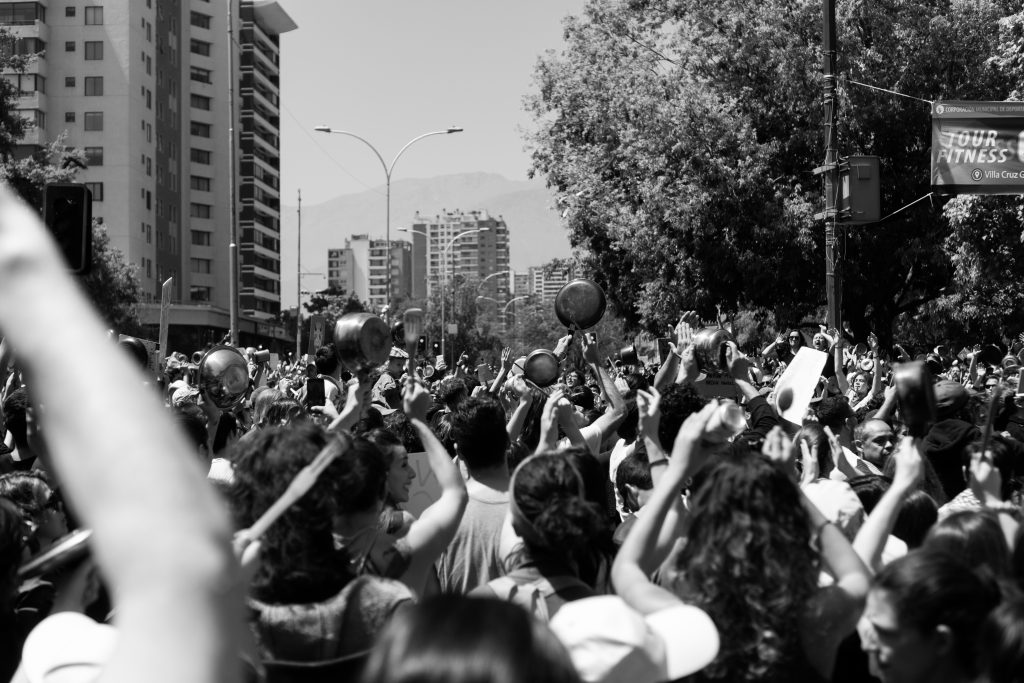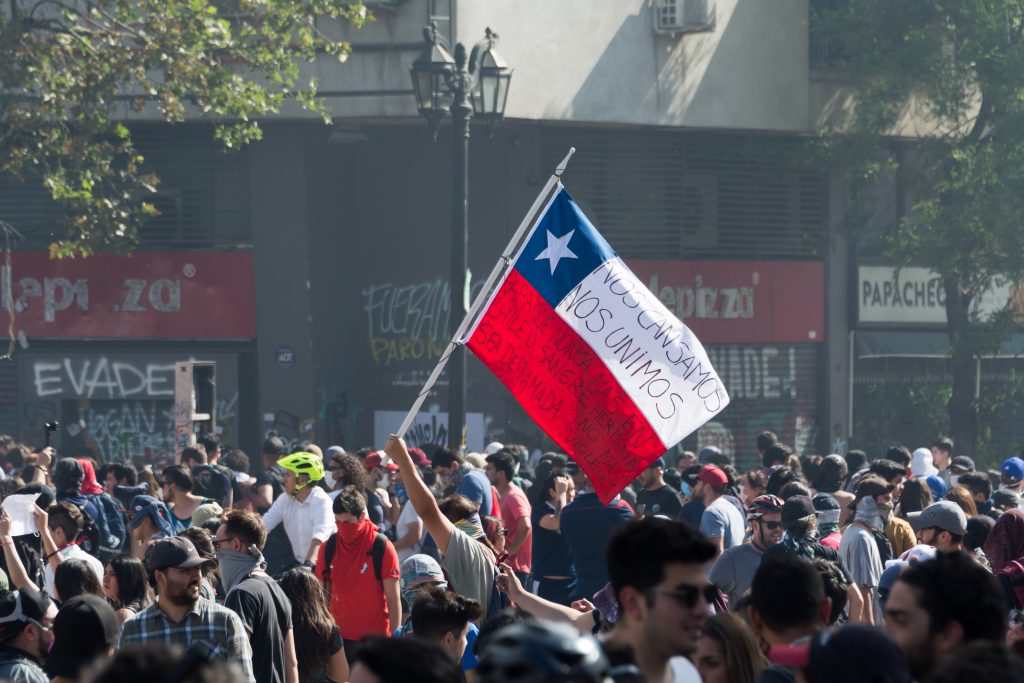For many people around the world, 2020 will be remembered as the year of a global pandemic. For Chileans, this year marks the end of a constitution inherited from one of its darkest periods and symbolizes the beginning of a new era. Last Sunday, more than 7.5 million went to the polls to vote in a referendum which would decide the fate of their new constitution – or, indeed, its demise.
The results were remarkable: 78% voted ‘approve’, with almost 79% also voting for the future constitution to be drafted by a Mixed Constitutional Convention. This means that Chile will be the first country in the world to have a constitution written by an equal number of women and men, as well as representatives of the indigenous communities, who will provide significant input to Chile’s defining piece of legislation for the very first time.
National discontent
Precisely one year ago, a small increase in metro fares for citizens living in the capital, Santiago, led to the outbreak of massive civil protests around the country. The social movement reflected a burgeoning discontent that had been building ever since the end of Augusto Pinochet’s dictatorship three decades ago.
Although the intervening years have been littered with regular protests demanding changes across sectors such as education, pensions and healthcare, in almost all cases protestors were met with a disappointing response from authorities. As a result, severe inequalities have prevailed in a country that for many outsiders seemed to be one of the most stable and successful in Latin America.
While the cost of living increased, wages remained low and most Chileans struggled to live with dignity. Meanwhile, the moneyed elites became increasingly out of touch with the realities of day-to-day life for the rest of the Chilean population.
In fact, 25% of the country’s wealth belongs to just twelve billionaires. At the other extreme, around 70% of employees earn less than the average national income (equivalent to £570 a month) and half the workforce does not earn enough to save for an adequate pension.
The economic model of Pinochet
The current material, political and social inequalities present in the country are a legacy of the economic model imposed by the country’s former dictator, Augusto Pinochet.
This model represents neoliberalism taken to the extreme. Not only do wealthy investors enjoy ludicrously deregulated markets but almost all Chilean institutions – from natural resources and health, to education and social securities – are either fully or largely privatised, with very little oversight from the government.
These large, powerful private companies act with virtual impunity – often at the expense of both the population and the natural environment – thanks to the rights granted to them by the current constitution. To take just one example, Chile’s water resources belong in their entirety to fully private entities. In times of drought, water companies may legally divert water supplies to massive mining conglomerates operating in the country, as they have done in the past, meaning that many farmers are left without an adequate supply of water to keep their farms running in a country that is experiencing increasing levels of water scarcity. Chile is the only country in the world whose water resources and their management have been fully privatised.
This model, designed to benefit the country’s wealthy elites, has created an irreconcilable division between societal groups. Small businesses and the middle class feel highly neglected and tokenistic reforms have been insufficient to reduce the gap between rich and poor. Generations of ordinary Chileans feel abandoned by their government and abused by their elites. While the law does not protect them from predatory corporations and fails to guarantee any decent standard of living, they cannot live with the dignity they deserve.
Why a whole new constitution?
Time and again major reforms proposed in Congress, from changes to the pension system to improved living standards, have been declared unconstitutional and, ultimately, blocked. Now, for the majority of Chileans, the writing of a new constitution centred around the basic welfare of individuals rather than that of private companies is the only way to achieve the significant structural changes people have been demanding for decades.
Perhaps more significantly, a new constitution would finally mark the end of a dictatorship whose legacy has lived on in the country far longer than it should have. The deployment of the military during last year’s protests and throughout the pandemic opened up old wounds that had not been felt so acutely since Pinochet’s fall. Many felt like they were reliving the same horrors they had experienced during the dictatorship.
Although conservatives continue to protect and justify the dictatorship, it was responsible for the writing of a constitution which Chilean citizens never truly approved. It was imposed on them back in 1980 at a time when dissidents were forcibly exiled, tortured and killed by the regime. Human rights abuses from those dark days remain fresh in the minds and hearts of generations of Chileans, who believe that the referendum result brings to an end the sinister legacy of autocratic rule in Chile once and for all, heralding the dawn of a new democratic era firmly endorsed by its own people.
What next?
With the plebiscite confirming the desire for a new constitution, what comes next is more complicated. People have significantly different expectations and visions for the new Chile. In order to make the constitution work for everyone, multilateral dialogue between leaders from right across the political spectrum will be crucial and must begin now.
A second vote will take place on 11th April next year in order to elect representatives of the Mixed Constitutional Convention. This group, in consultation with civil society leaders and citizens themselves, will then begin work on drafting the new constitution.
If all goes to plan, a final plebiscite will be held in August 2022 to approve or reject the newly drafted constitution. Two more years of waiting, therefore, remain until Chileans will be able to live in what they hope is a freer, more inclusive and more dignified society for themselves and generations of Chileans to come.


